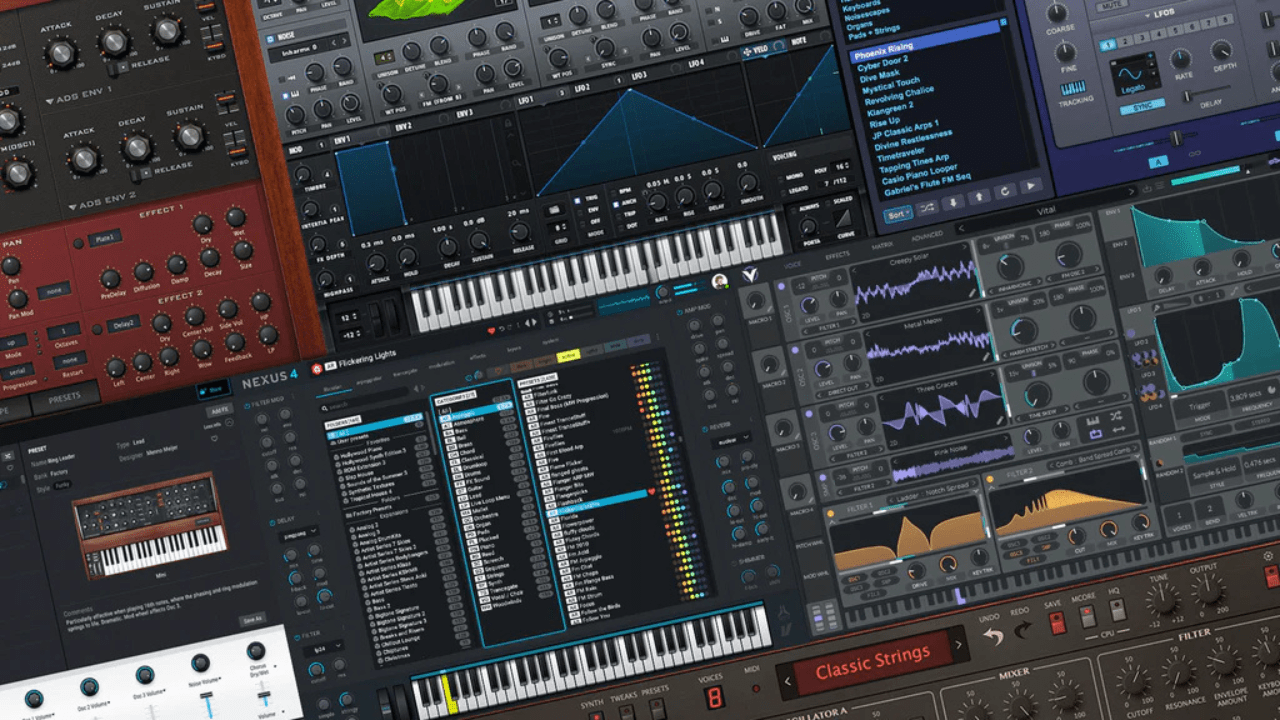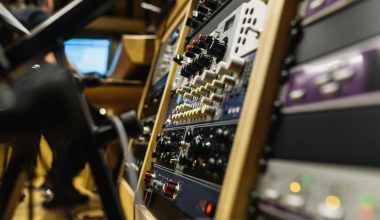VST plugins, short for Virtual Studio Technology plugins, are essential tools for modern music production. Whether you’re creating a film score, a chart-topping hit, or an underground beat, the best VST plugins can elevate your work. They allow producers to access virtual instruments, effects, and tools that would otherwise require physical equipment.
From synthesizers and samplers to reverb and delay effects, VST plugins are versatile. With so many options on the market, finding the best VST plugins for your specific needs can feel overwhelming. But fear not—this guide will break down everything you need to know.
Let’s dive into the world of VST plugins and discover which ones are worth adding to your setup.
What Are VST Plugins?
VST plugins are software-based tools that integrate into your Digital Audio Workstation (DAW). They replicate the functions of physical instruments and effects, offering flexibility and convenience.
There are three main types of VST plugins:
- VST Instruments: Virtual synthesizers, samplers, and pianos.
- VST Effects: Tools like EQ, compression, reverb, and delay.
- VST MIDI Tools: Plugins that manipulate MIDI data, such as arpeggiators.
Why Are VST Plugins Essential for Music Production?
The best VST plugins are a game-changer for several reasons:
- Cost-Effective
They replicate expensive hardware at a fraction of the cost. - Versatility
From orchestral strings to futuristic synths, plugins cater to every genre. - Portability
With VSTs, your studio fits into your laptop, allowing for on-the-go production. - Creative Freedom
The best VST plugins unlock endless possibilities for sound design and composition.
Understanding their importance helps you choose the right tools for your music production journey.
Criteria for Choosing the Best VST Plugins
Selecting the best VST plugins depends on your needs and workflow. Consider these factors:
- Sound Quality
High-quality sound is non-negotiable. Listen to demos or reviews before purchasing. - Ease of Use
A user-friendly interface ensures you spend more time creating and less time troubleshooting. - Compatibility
Ensure the plugin works with your DAW and operating system. - Value for Money
Look for plugins that offer a balance between features and price. - Support and Updates
The best VST plugins come with reliable customer support and regular updates.
By evaluating these criteria, you can find plugins that suit your production style.
Top Categories of VST Plugins
The best VST plugins can be categorized based on their function. Let’s explore the top types and standout options in each category:
1. Synthesizers
Synth VSTs are perfect for creating electronic sounds, pads, and leads.
- Serum by Xfer Records: Known for its intuitive interface and versatile wavetable synthesis.
- Massive X by Native Instruments: Ideal for modern electronic music with deep sound design capabilities.
- Pigments by Arturia: Combines wavetable and analog synthesis in one plugin.
2. Samplers
Samplers allow you to manipulate and play back recorded sounds.
- Kontakt by Native Instruments: A powerful sampler with a vast library of instruments.
- Serato Sample: Great for chopping and rearranging samples.
- EXS24 (Logic Pro): A built-in option for Logic Pro users, perfect for basic sampling.
3. Drum Machines
These plugins focus on percussion and rhythm.
- Battery 4 by Native Instruments: A comprehensive drum sampler for all genres.
- XO by XLN Audio: A unique plugin that visualizes drum samples for easier selection.
- Superior Drummer 3 by Toontrack: Excellent for realistic acoustic drum sounds.
4. Effects Plugins
Effect plugins shape and enhance your tracks.
- FabFilter Pro-Q 3: A versatile EQ with precision and transparency.
- Valhalla VintageVerb: Known for lush, atmospheric reverb.
- Soundtoys Decapitator: Adds analog warmth and saturation.
5. Orchestral Plugins
Perfect for film scoring or classical compositions.
- Spitfire Audio Albion One: A go-to for cinematic scoring.
- EastWest Hollywood Orchestra: A highly detailed orchestral library.
- BBC Symphony Orchestra by Spitfire Audio: Offers authentic orchestral sounds.
These categories and plugins highlight the diversity of tools available to modern producers.
Free vs. Paid VST Plugins
When searching for the best VST plugins, you’ll encounter both free and paid options. Here’s how they compare:
Free Plugins
- Pros: Cost-effective, great for beginners.
- Cons: Limited features, potentially lower sound quality.
- Examples:
- Vital: A free wavetable synth with professional features.
- TAL-Reverb 4: Simple yet effective reverb.
- Dexed: A versatile FM synthesizer.
Paid Plugins
- Pros: High-quality sound, advanced features, better support.
- Cons: Can be expensive.
- Examples:
- Omnisphere by Spectrasonics: Known for its expansive sound library.
- FabFilter Pro Bundle: A collection of industry-standard effects.
Choosing between free and paid plugins depends on your budget and production goals.
Tips for Using VST Plugins Effectively
Even the best VST plugins require skill and creativity to shine. Here are some tips:
- Learn the Interface
Spend time understanding the controls and features of each plugin. - Layer Sounds
Combine multiple plugins to create richer, more complex sounds. - Use Presets as Starting Points
Presets are great for inspiration but tweak them to make them your own. - Organize Your Plugins
Categorize plugins in your DAW for faster access during production. - Keep Your System Updated
Regularly update plugins to ensure compatibility and access new features.
The Future of VST Plugins
The world of VST plugins is constantly evolving. Here are some trends shaping the future:
- AI Integration
Plugins with AI capabilities, like iZotope’s Neutron, are revolutionizing sound design. - Cross-Platform Compatibility
More plugins are becoming compatible across multiple DAWs and operating systems. - Subscription Models
Companies like Splice offer plugins on a subscription basis, making them more accessible. - Cloud-Based Plugins
Cloud technology is enabling collaboration and access to plugins without installation.
Conclusion
The best VST plugins are essential tools for music producers of all levels. They enhance creativity, streamline workflows, and deliver professional-quality results. By exploring different types, learning how to use them effectively, and staying updated on trends, you can take your productions to the next level.
Related Articles:
For further reading, explore these related articles:
- Best Professional Microphone for Singing: A Detailed Guide
- Best Music Instrument: Ultimate Guide for Every Musician
For additional resources on music marketing and distribution, visit Deliver My Tune.





